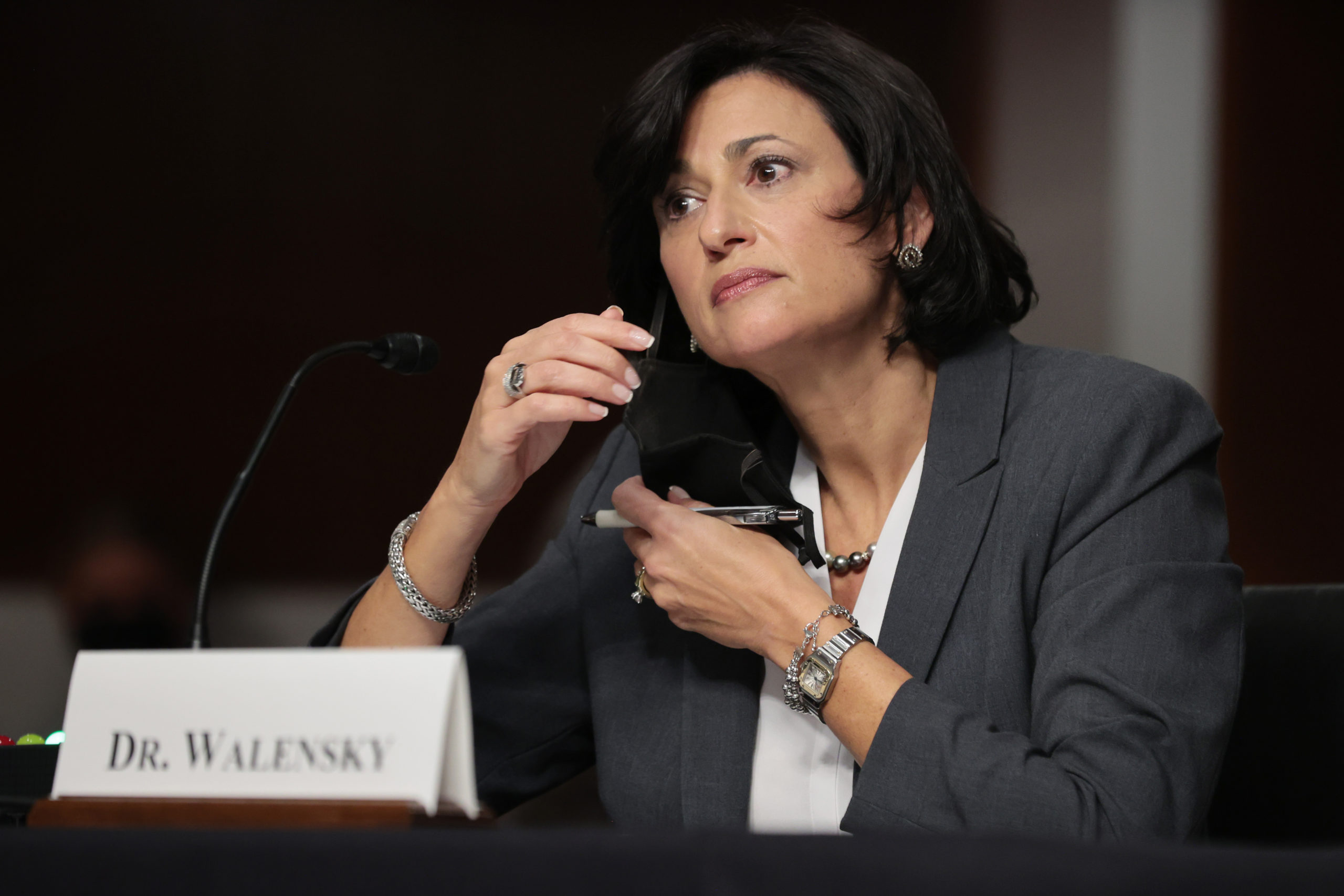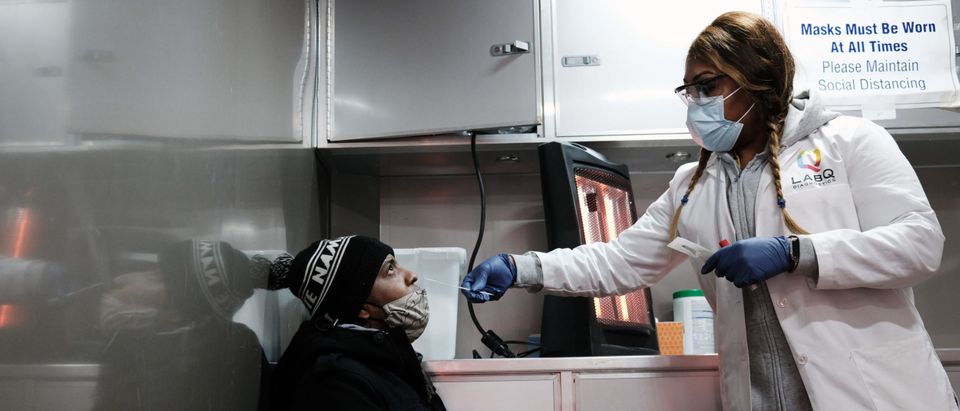The Centers for Disease Control and Prevention (CDC) shortened the isolation rules for healthcare workers who test positive for COVID-19 on Thursday amid concerns that the Omicron variant could overwhelm hospitals.
The CDC guidance originally noted that COVID-positive health care workers should stay out of work for 10 days. The updated guidance shortens this to seven days if the worker has no symptoms and subsequently tests negative. If hospitals begin to suffer from serious staffing shortages, the isolation time for a COVID-positive health care worker can be cut down to five days or less, the CDC added.
“Due to concerns about increased transmissibility of the SARS-CoV-2 Omicron variant, this guidance is being updated to enhance protection for healthcare personnel (HCP), patients, and visitors, and to address concerns about potential impacts on the healthcare system given a surge of SARS-CoV-2 infections,” the CDC notes on its website.
The seven-day return to work rule has caveats: The negative test must be “obtained within 48 hours prior to returning to work … since symptoms first appeared” and “at least 24 hours” must “have passed since last fever without the use of fever-reducing medications.”

WASHINGTON, DC – NOVEMBER 04: Centers for Disease Control and Prevention Director Rochelle Walensky testifies before the Senate Health, Education, Labor, and Pensions Committee about the ongoing response to the COVID-19 pandemic in the Dirksen Senate Office Building on Capitol Hill on November 04, 2021 in Washington, DC. Earlier this week Walensky gave final approval for the Pfizer-BioNTech coronavirus vaccine for children between 5 and 11 years old. (Photo by Chip Somodevilla/Getty Images)
In another update to the rules, healthcare workers who are fully vaccinated and have the booster won’t need to undergo quarantine at home after a high-risk exposure. The CDC noted in a press release that “isolation relates to behavior after a confirmed infection, and quarantine is following exposure to the virus but without a confirmed infection.”
The CDC’s updated guidance coincides with a rise in fear over the Omicron variant, which is believed to be more transmissible than previous variants but may spark less severe symptoms. One study recently published from South Africa suggests that individuals who test positive for the Omicron variant are 80% less likely to end up hospitalized when compared to previous strains.
Once a patient is hospitalized, however, the risk of severe disease remains the same as past strains, according to the study. (RELATED: Despite Evidence, Walensky Refuses To Call Omicron ‘Mild’ In Interview With Fox’s Bret Baier)
“As the healthcare community prepares for an anticipated surge in patients due to Omicron, CDC is updating our recommendations to reflect what we know about infection and exposure in the context of vaccination and booster doses,” CDC director Dr. Rochelle Walensky said in a statement. “Our goal is to keep healthcare personnel and patients safe, and to address and prevent undue burden on our healthcare facilities. Our priority, remains prevention—and I strongly encourage all healthcare personnel to get vaccinated and boosted.”


